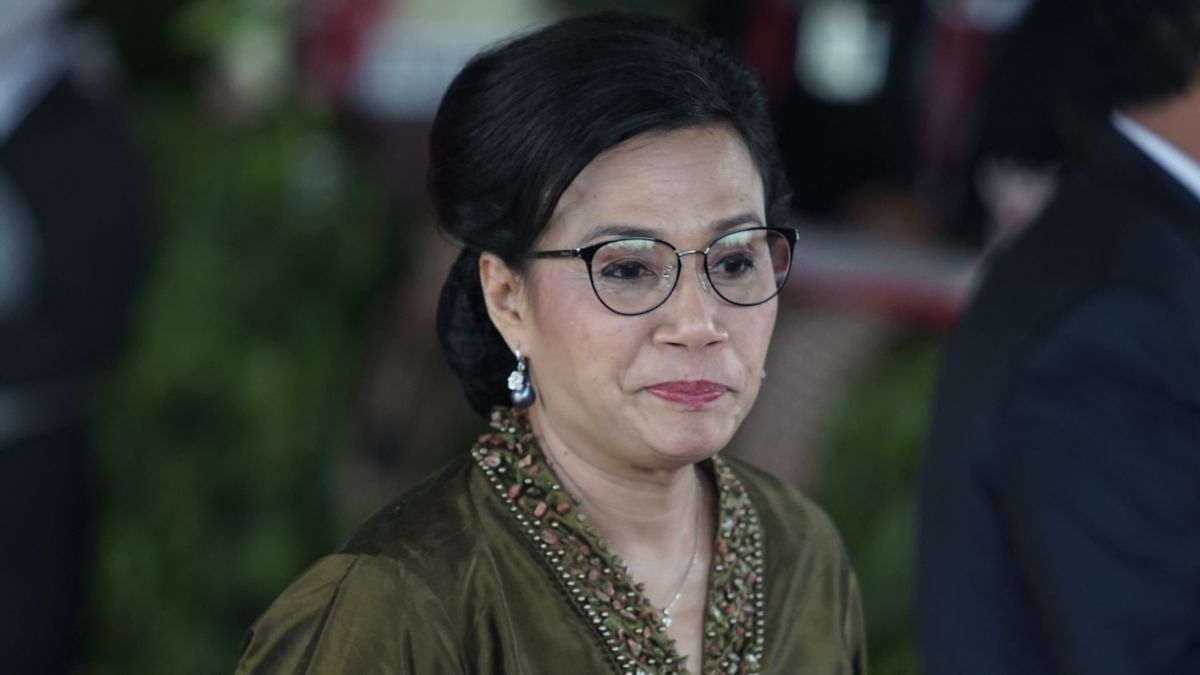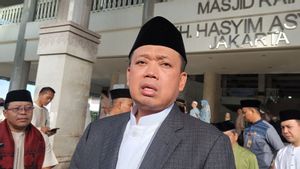JAKARTA - Domestic tax revenue is recorded sluggish. At least that is illustrated by the Ministry of Finance's explanation which states that the realization of tax revenue in 2019 only reached 84.4 percent or IDR 1,332 trillion of the State Budget (APBN) target of IDR 1,577 trillion.
The tax realization that did not reach this target left a difference in revenue or a shortfall of Rp.245 trillion. Finance Minister Sri Mulyani said the low tax revenue realization was due to the impact of income from the manufacturing industry and the fluctuating global economy.
"State revenues are under pressure due to the influence of the global economy," he said in Jakarta, Tuesday, January 7.
Based on data from the KiTa State Budget, the achievement of this tax shortfall is higher than in 2018, which amounted to Rp.108.1 trillion and 2017, which was Rp130 trillion. In fact, the Ministry of Finance's record is the worst tax performance in at least the last five years.
When viewed in terms of the tax component, value added tax (PPN) and luxury goods VAT (PPNBM) experienced the largest contraction compared to other components with a growth of only 0.8 percent after 2018 grew 11.8 percent.
The realization of PPN and PPNBM was recorded at only Rp.532.9 trillion of the APBN target of Rp655 trillion or 81.3 percent of the target. "VAT compared to last year means that it has contracted, now it only grows 0.8 percent," he said.
In addition, oil and gas income tax (PPh) has also weakened. Realized oil and gas PPh was only Rp. 59.1 trillion from the target of Rp. 66.2 trillion. This figure also only grew 8.7 percent, or very low from 2018, which grew by 28.6 percent.
Non-oil and gas PPh also contracted compared to last year with only being able to grow 3.8 percent after 2018 reaching 14.9 percent. The realization was Rp. 711.2 trillion or 85.9 percent of the target of Rp. 828.3 trillion.
The sluggishness of tax revenue in 2019 has previously been projected by a number of tax observers. Tax observer Danny Darussalan Tax Center (DDTC) Darussalam said the tax shortfall in 2019 was due to the absence of a significant tax policy carried out in the first semester of 2019 to explore tax potential.
It is considered that tax authorities can only rely on revenue sources that are routine cycles. "This is a fact that must be accepted by the government regarding tax revenue. So, it is better if the remaining energy, thoughts and time are used for the 2020 strategy, "said Darussalam as quoted from kontan.co.id.
Of course, the fact of the realization of 2019 tax revenues is used as an afterthought towards 2020. Whether by reformulating the 2020 tax target to be even more realistic, or formulating tax policies to expand the tax base consisting of tax subjects and new tax objects.
Darussalam added that the government must remain focused on the ongoing tax reforms including reforms of the organization, business procedures, human resources, data and information, as well as the revision of the Tax Law (UU).
According to Darussalam, if the government only has weapons of the Tax Facility Bill (RUU) for Economic Accounting or the Taxation Omnibus Law alone will replace tax revenues in the following years.
So, he continued, the government must also immediately prepare the Revision of the Law (RUU) on General Provisions and Tax Procedures (KUP), the Income Tax Bill, and the VAT Bill as a strategy for achieving tax revenue in terms of tax policies and regulations.
"The main substance remains in the KUP Bill, the Income Tax Bill, and the VAT Bill, of course it must also be supported by a reliable tax administration," said Darussalam.
The English, Chinese, Japanese, Arabic, and French versions are automatically generated by the AI. So there may still be inaccuracies in translating, please always see Indonesian as our main language. (system supported by DigitalSiber.id)













